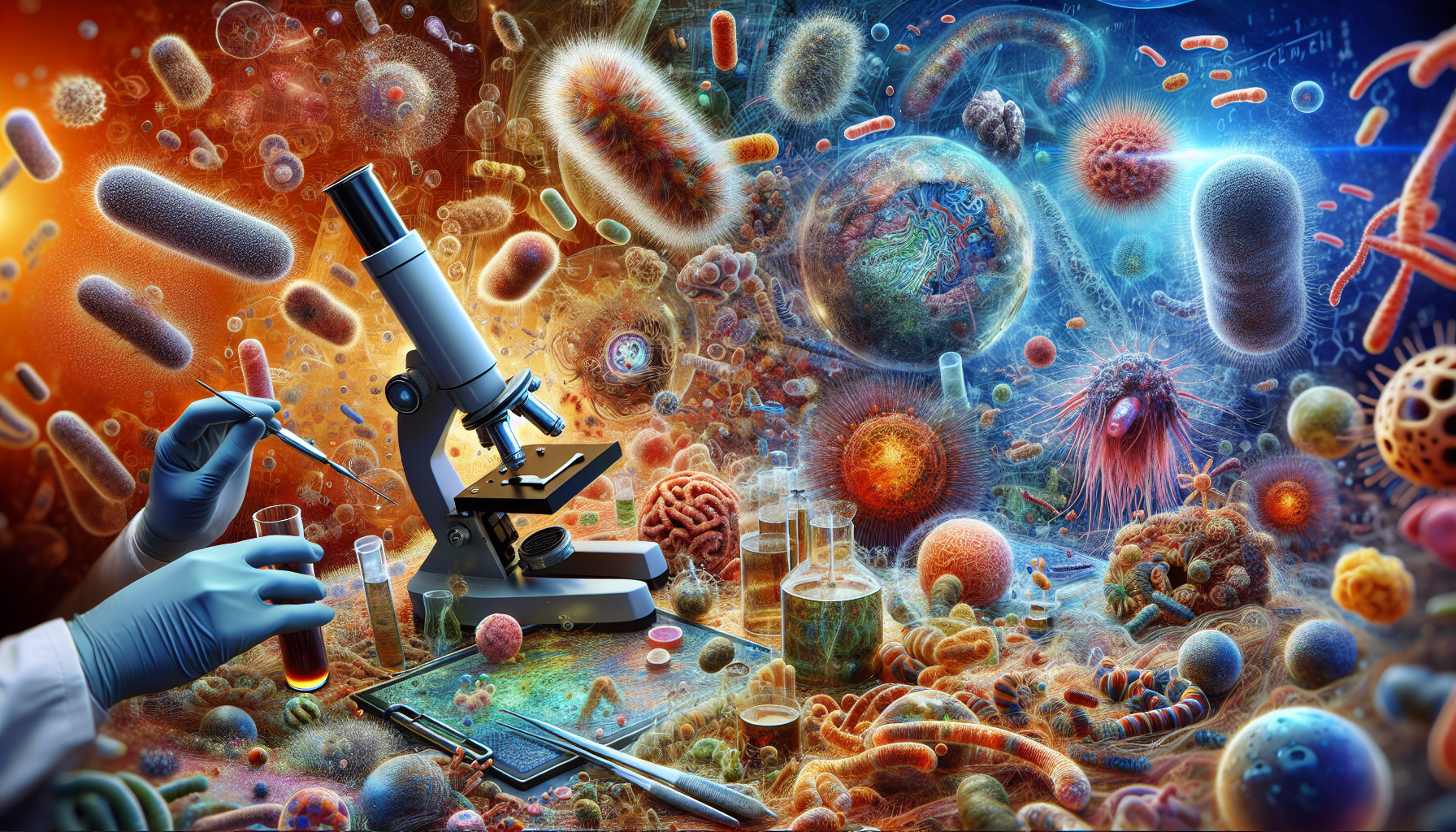Introduction to Microbiomes
The term ‘microbiome’ refers to the vast community of microorganisms that exist in a particular environment. These environments can range from the human body to the soil in forests, the depths of the ocean, and even the surfaces in our homes. A single microbiome can harbor bacteria, fungi, viruses, and other microscopic life forms that often play a crucial role in the health and functioning of their environment. As we delve into the intricacies of microbiomes, we discover their profound impact on everything from human health to global ecosystems.
The Human Microbiome and Its Importance
One of the most studied microbiomes is that of the human body. The human microbiome includes the ecosystems in our gut, on our skin, and in various other parts of the body. This complex network of microbial life has a symbiotic relationship with us, often helping to digest food, synthesize vitamins, and protect against pathogens.
Research has revealed the significance of the gut microbiome in particular, noting its influence on digestion, immune function, and mental health. The delicate balance of good and bad bacteria within the gut can affect the body’s susceptibility to conditions like obesity, type 2 diabetes, and inflammatory bowel disease. Furthermore, increasing evidence links the gut microbiome to neurological conditions, such as depression and anxiety, suggesting a bidirectional communication between the gut and the brain, often called the gut-brain axis.
Microbiomes in the Environment
Beyond the human body, microbiomes play a pivotal role in environmental health and sustainability. Soil microbiomes, for instance, are essential for plant growth, nutrient cycling, and carbon sequestration. These microscopic organism communities help decompose organic matter, fix atmospheric nitrogen, and make crucial minerals available to plant roots, boosting agricultural productivity and maintaining ecosystem balance.
Microbiomes contribute significantly to marine life and global climate regulation in the oceans. Microorganisms in seawater participate in nutrient cycling, support the food web, and are involved in the decomposition of organic material. They also play a part in the ocean’s carbon cycle, absorbing huge amounts of carbon dioxide from the atmosphere and helping to regulate Earth’s climate.
Impacts of Human Activities on Microbiomes
Human activity, including the use of antibiotics, changes in diet, urbanization, and pollution, has had a profound impact on various microbiomes. Antibiotic overuse, for example, can disrupt the balance of bacteria within the human gut, leading to antibiotic resistance and the loss of beneficial microbial diversity.
Agricultural practices such as excessive fertilizers and pesticides can negatively affect soil microbiomes, leading to decreased soil fertility and increased vulnerability to pests and diseases. Similarly, pollution and climate change can alter the composition and function of marine microbiomes, with potential ramifications for the broader marine ecosystem and climate regulation.
The Frontiers of Microbiome Research
Microbiome research is a relatively new but rapidly evolving field, with technological advances in DNA sequencing fueling discoveries. Scientists now use metagenomics, a technique that allows them to analyze genetic material from entire microbial communities, to study microbiomes more comprehensively. Researchers have uncovered numerous previously unknown microorganisms and their functions through this approach.
Additionally, efforts are underway to manipulate microbiomes to improve human health and environmental outcomes. Probiotics and prebiotics are being explored to enhance the human gut microbiome, while phytobiomes – plant-associated microbiomes – are being examined to boost crop resilience and yield. Controversially, some scientists are attempting to engineer microbiomes directly through the introduction of synthetic microorganisms, a move that could offer benefits but also raises ethical and ecological concerns.
The Ethics and Future of Microbiome Manipulation
As we gain a deeper understanding of the centrality of microbiomes to our world, we also face ethical questions about how far we should go in altering them. The potential to manipulate microbiomes for health and environmental purposes is compelling, but it also necessitates caution and comprehensive research to avoid unintended consequences.
Moreover, there is a need for global cooperation and governance as microbiome research has implications that transcend national borders, such as biosecurity and biodiversity preservation. Establishing guidelines for responsibly managing our relationship with microbiomes will be critical as we move forward.
Conclusion
Exploring microbiomes reveals a microscopic yet immense world that profoundly affects health, ecology, and the planet. It affirms the interconnectedness of life and the necessity of respecting and preserving the balance within these complex ecosystems. As we continue to investigate and manipulate these intricate communities, we must do so with awareness and an ethical mindset, aiming to harness their power to better humanity and our environment. Studying microbiomes is not just an academic pursuit but a journey of understanding our place within the living world and the responsibility that comes with it.

